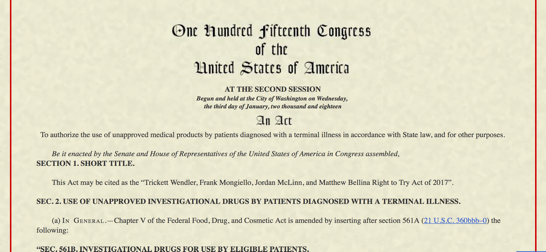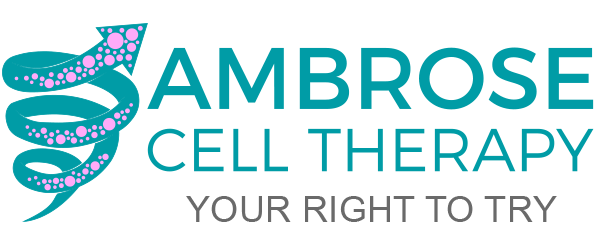Natural Law – Your Right to Try
The natural law framework led to the concept of “Natural Rights.” The philosopher John Locke defined Natural Rights as a person’s rights to life, liberty, and property. Locke believed that the most basic human law of nature is the preservation of humanity. To serve that purpose, he reasoned, individuals have both a right and a duty to preserve their own lives.
These principles have become universal with The Declaration of Independence (1776) of the United States, the Declaration of the Rights of Man and of the Citizen (1789) of France, the Universal Declaration of Human Rights (1948) of the United Nations as well as the European Convention on Human Rights (1953) of the Council of Europe.
The Federal Right to Try Act of 2017 is the most current way of expressing our natural right to restore our health and preserve our own lives. It gives new options to patients with life-threatening and debilitating conditions, who have failed – or are not amenable to – accepted surgeries, drugs, or devices.

There are a surprising number of adults living with complex chronic degenerative conditions, particularly those with multiple diseases (morbidities).
One such patient was Tony. In September 2018, he was facing multiple joint replacements and surgeries due to debilitating chronic inflammation and osteoarthritis in his knees, left hip, both shoulders, and fingers. Instead of operations or drugs, he exercised his ‘Right to Try” AMBROSE Cell Therapy. Now over a year and a half out, Tony is pleased to report his remarkable improvement in pain scores, mobility, function, and quality of life. Here is his inspiring Patient Reported Outcome.
